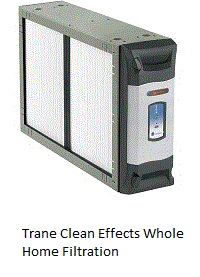Arizona Air Filtration, The Importance of Indoor Air Quality
 Can Installing Arizona Air Filtration Devices Improve Your Indoor Air Quality (IAQ)
Can Installing Arizona Air Filtration Devices Improve Your Indoor Air Quality (IAQ)
Recent reports evidence the benefits Arizona Air Filtration has on the effect of Phoenix indoor air quality. According to the Arizona Radiation Regulatory Agency, area homeowners don’t have to risk the IAQ dangers associated with radon. The report “Radon Doesn’t Have To Be A Problem,” identifies clear health benefits linked to Arizona air filtration. According to the Radiation Regulatory Agency, radon IAQ problems can be reduced by any of three differing methods:
- Use an air filtration device to capture, filter and re-inject the ducted supply lines of central forced air heating and A/C systems
- Install a stand-alone central Arizona air filtration system on homes that lack central A/C and central heating
- Install console HEPA filter systems in Phoenix regional homes that lack space for forced air duct systems.
Controlling the problem by use of air filtration devices is dependent upon the existing type of heating and cooling system – or the lack thereof of any central HVAC units. The Arizona-based Regulatory Agency goes on to advise homeowners concerning current radon management systems versus new technology systems. Many regional homes may us active soil depressurization systems, yet the Agency suggests that applying one of the three air filtration solutions can not only control radon but also reduce the effects of allergies and asthma. If your radon levels are relatively low, the Agency says you might be better off considering new indoor air control technology.
Furthermore, the Agency offers the following primary instructions for correct application and assured performance:
- HEPA Connections – Hire a qualified Arizona HVAC mechanical contractor for the installation. If possible, your indoor air quality system should connect to your existing air conditioning or furnace duct-work.
- Testing – Ensure that your air filtration system effectively manages the radon decay level in your home.
Understand that radon is not reduced, but rather the harmful radon decay products are reduced. Understand also that Arizona air filtration is only effectively appropriate for radon levels from 4 to 8 pCi/L.
Radon Only One Danger Managed By Effective Arizona Air Filtration
State indoor radon sampling indicates that Arizona homes may slightly exceed the EPA recommended action level for radon concentrations. But this is a rate that hangs near to the national average.
The good news: Temperatures is Phoenix, Mesa, Scottsdale and other Arizona regions tend to help reduce the amount of radon that is drawn into a home. The bad news: Arizona sub floor forced air conditioning systems often use return air ducts that run on the soil below slab floors. This results in overall poorer indoor air quality. Here are some steps you can take to immediately reduce the problem:
- When weather permits, ventilate your home
- Open some windows
- Open doors and use freestanding fans to force exterior air to pass through your home
- Contact American Cooling and Heating for immediate installation of Trane Clean Effects Whole Home Filtration.
But remember: Indoor air quality is not just about radon. According to the U.S. EPA, indoor air pollutants fall into two categories: 1) Particulate matter such as animal dander, dust, molds, pollen and smoke 2) Gaseous pollutants such as arises from adhesives, cleaning products, gas cooking, pesticides and varnish.
Clean air systems can remove many indoor air contaminates. Air filtration devices function on the order of particle removers, gaseous pollutant removers and pollutant destruction devices. American Cooling and Heating is licensed, bonded and insured to handle your Arizona air conditioning and indoor air quality problems. We can install, repair or inspect your existing HVAC equipment.
For help in deciding which indoor air filtration device, click here, is best for your Arizona home contact American Cooling and Heating today.
